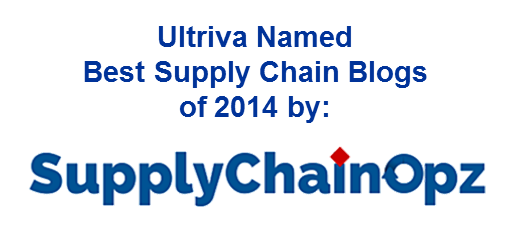Being based in Cupertino, California, it is not uncommon to run into people who speak two, sometimes three different languages. My children are well-versed in explaining American idioms to classmates who might take “barking up a wrong tree” literally. Silicon Valley is its own little global microcosm.
 It was interesting to note that Forbes magazine recently reported that middle market businesses in the United States are greatly affected by the global economy. Company’s materials, supplies, and services might already be purchased from outside the U.S. with global customers on the other side of the world. According to the Bank of America Merrill Lynch CFO Outlook survey of CFOs, 62 percent reported buying materials or services from foreign companies, up from 47 percent the year before. With respect to all activities, 73 percent reported buying from, selling into, or having actual operations in foreign countries, a significant increase over the 54 percent of the year before. And it would not be wise to assume they all speak English.
It was interesting to note that Forbes magazine recently reported that middle market businesses in the United States are greatly affected by the global economy. Company’s materials, supplies, and services might already be purchased from outside the U.S. with global customers on the other side of the world. According to the Bank of America Merrill Lynch CFO Outlook survey of CFOs, 62 percent reported buying materials or services from foreign companies, up from 47 percent the year before. With respect to all activities, 73 percent reported buying from, selling into, or having actual operations in foreign countries, a significant increase over the 54 percent of the year before. And it would not be wise to assume they all speak English.
Given these percentages of global companies and global customers any Demand Driven Supply Chain (DDSC) solution that lacks multi-lingual support is doomed. Ultriva CEO Narayan Laksham reports, “100% of our customers are global because they have at least a few suppliers who are outside the US. What we have seen is that even a small company, with revenue of less than $25 million, ends up using suppliers from Asia or Mexico. Given that the suppliers are global, it is critical for any DDSC solution to support multiple languages. We have found that forcing English language in an application for the non-English speaking countries can dramatically limit the adoption of the software.”
Multi-lingual support:
Ultriva currently supports English, Spanish, Chinese, Japanese, French, German and Brazilian Portuguese. Because of the powerful architecture Ultriva can add any language in less than four weeks. So within a single instance of the application, a user in the United States can login and use the application in English while a supplier from Mexico can use the application in Spanish and a supplier from China can login and use the application in Mandarin Chinese.
Interestingly, we are finding that when a prospect decides to add a foreign language, such as Italian or another European language, Ultriva can say yes, it can be done in less than a month, a capacity not available by any other technology firm in the space. Recently Ultriva had a prospective customer based in Brazil who wanted to evaluate the application. In three weeks they were given a Brazilian-Portuguese version and three weeks later, I am happy to report that they became another satisfied Ultriva customer.
Customer demand initially drove the development of the Spanish and Chinese versions of Ultriva, understanding that these languages are essential to support a global supply base. After those multi-lingual options were completed, our engineering team added more languages based on customer/prospect demand. Again, Narayan Laksham emphasized, “As the suppliers and customers become global, it is becoming almost mandatory to have these languages especially if we are selling in to large enterprises. Even though managerial levels and above can manage with English, most of the shop floor personnel need a local language. So having a local language version provides a wider acceptance of the software.”
Ultriva is currently in over 200 manufacturing facilities worldwide. As these companies started rolling out Ultriva, they could pick the next best-suited plant for deployment without worrying about where it is located in the world. For example, a large energy company identified an engineered-to-order plant located in France (with most of the suppliers also in France) as the first plant to deploy Ultriva. Without the French language capability, this plant could not have gone live. The example above on Brazilian Portuguese is another fundamental example where even with the extraordinary functionality of Ultriva, the firm would not have closed the deal without the multi-lingual capacity and functionality. The result is that Ultriva is now deployed in two plants in Brazil with that firm, with two more plants to go live next year.
The diversification of the global supply chain and various language suppliers drives the need and capacity only Ultriva provides in the demand driven supply chain software solution space. Customers mandate that supply chain software effectively address the global market in a multi-lingual dynamic.



